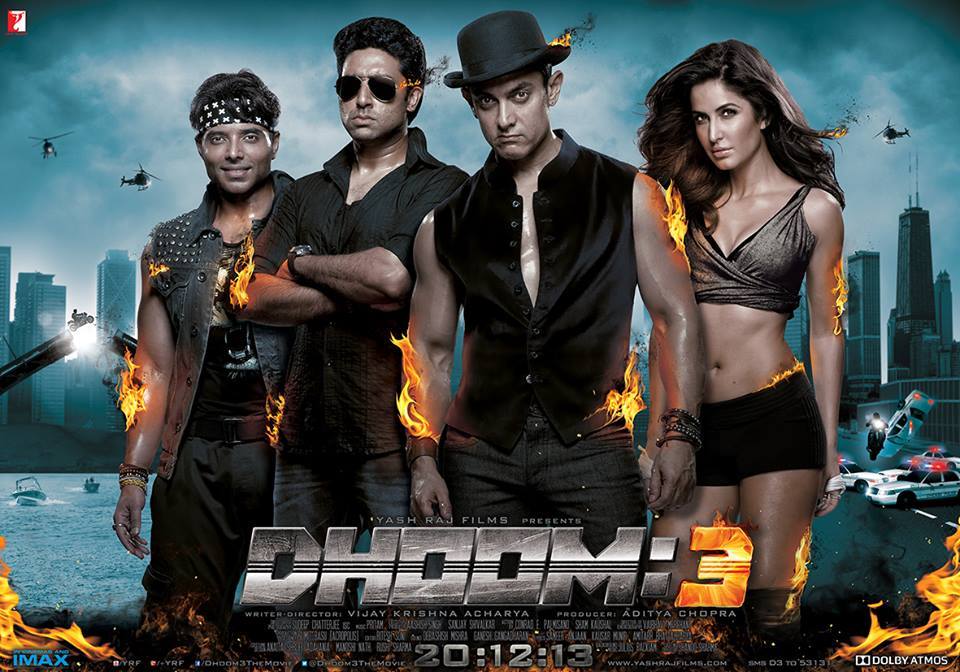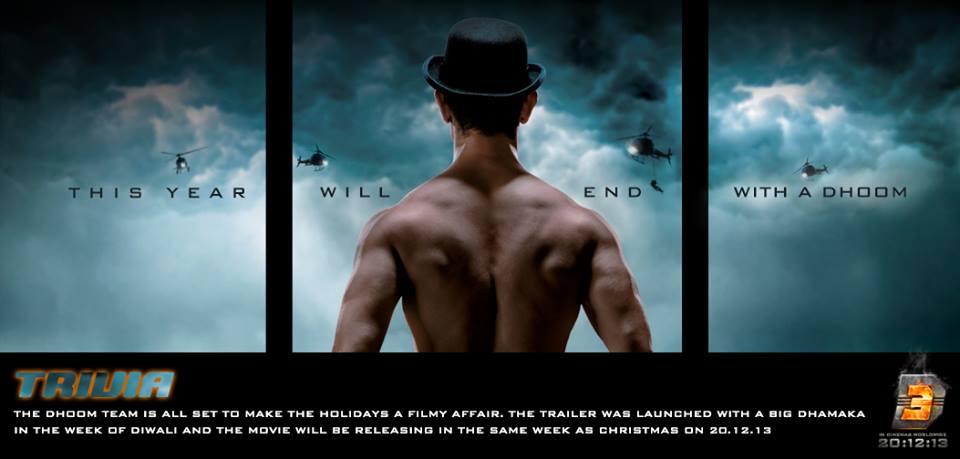[Spoilers ahead, and this is a story of spoils.]
Dhoom: 3 comes at a perfect time. The storyline couldn’t be more apt.
It’s 2013, Chicago, and the bankers are the baddies. They foreclose on your life and give you three days to give them your stuff and move. They don’t care if you have kids. They don’t care if you’re already selling your stuff to pay your loans.
It’s a 2013 Christmas release and when the bankers steal your life’s work on the cusp of your comeback, discarding your reason and appeals, what option do you have but to shoot?
In America the muggers are white men. They wear bandanas and jeans and they wear suits. The banker is like a vampire: he never ages. Bankers are thieves: they have stolen your hope.
And in India money buys politics and the propaganda of equality is undermined by reality.
It’s not that you aren’t resilient: your rickshaw will keep moving even as it’s falling apart, but in the end when the wheels come off, there’s nothing to do but stop. “Banks can ruin a man in a matter of days.”
As the film says, lives are wrecked, people laid off.
The police are just the banks’ lackeys. They lie, then regret, then chase you anyway.
The narrative of the film is weighted against power:
• The audience is invited to root for the thieves over the establishment. Thieves are not thieves. “Something has gone wrong” and their heads are no longer right.
• The audience is invited to pick the childlike emotional Samar over Samir the ego.
The undercurrent of the story is freedom: Samar’s freedom, freeing money to rain on homeless people outside the bank, freedom from the police.
People chant homilies about hope in togetherness and building your destiny.
Finally, freedom = death.
बन्दे है हम उसके
हम पे किसका ज़ोर
उमीदों कि सूरज
निकले चारों और
इरादे है फौलादी
हिम्मती हर कदम
अपने हाथों किस्मत लिखने
आज चले हैं हम

